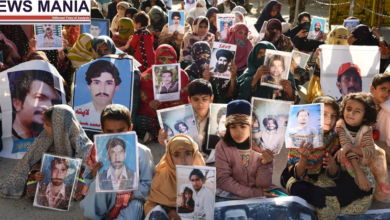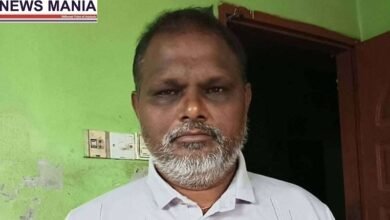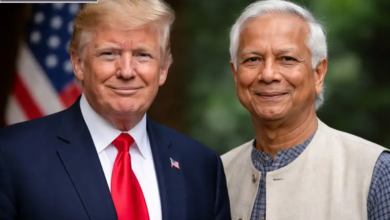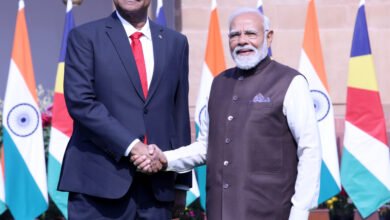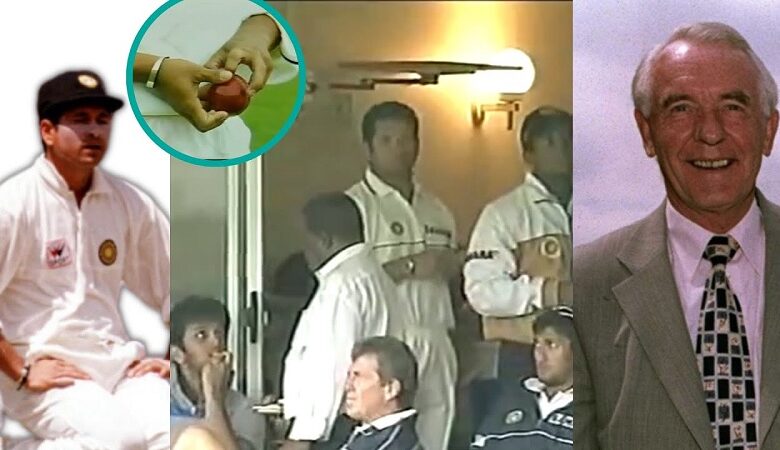
By Agnibeena Ghosh
Mike Denness, a former England Test captain, enjoyed a distinguished first-class cricket career. However, his name will forever be linked to a significant controversy in Indian cricket. Denness’s appointment as a match referee for the South Africa vs. India Test in Port Elizabeth marked the beginning of a tumultuous episode that shook the cricketing world.
In 1996, Mike Denness qualified as an ICC match official and began what initially seemed like an uneventful career in match refereeing. Little did he know that his tenure would take an unexpected turn when he found himself presiding over a Test match between South Africa and India, a decision that would have a far-reaching impact on the sport.
The second Test of the series in Port Elizabeth saw Denness taking disciplinary action against six Indian players for their on-field conduct. Harbhajan Singh, Shiv Sunder Das, and Deep Dasgupta were handed suspended one-Test bans for excessive appealing. Virendar Sehwag received a one-Test suspension for dissent, having claimed a catch that had clearly bounced. Captain Sourav Ganguly was given a one-Test and two ODI suspension for his “inability to control the behavior of the team.” However, it was Sachin Tendulkar’s punishment that stirred the most controversy; he was banned for one match and suspended for a year for ball tampering.
The news of these sanctions ignited a massive outcry in India. Denness became the subject of public anger, with effigies being burned in the streets. The issue was even brought before the Indian Parliament. Some quarters accused Denness of racism, as South Africa’s team received no penalties for their behavior.
Niranjan Shah, the honorary secretary of the Board of Control for Cricket in India (BCCI), voiced the board’s displeasure: “We are unhappy with his inconsistency, and the Indian team has no confidence in him. We feel that all the decisions are against only India. The South Africans committed the same excessive appealing.”
At that time, Tendulkar had not yet attained his current status as a national hero, but his reputation was pristine and would be tarnished by these allegations. Television cameras had captured the 28-year-old touching the seam of the ball before producing remarkable swing with his usually innocuous medium-pacers.
The charges against Tendulkar pertained to his failure to inform the umpires that he was cleaning the ball, rather than tampering with it. Regardless, the implications were the same. JagmohanDalmiya, the president of the BCCI, led the protests against Denness, demanding his removal by the ICC from overseeing the subsequent match.
The ensuing battle between the BCCI and the ICC raged for days. The ICC stood by Denness, asserting that he had merely applied the laws of the game to the incidents reported by the on-field umpires. The BCCI, known for its immense influence, lobbied other cricket boards and threatened to boycott the final Test.
Malcolm Speed, the ICC chief executive at the time, offered his support for Denness, stating, “During his time refereeing Test and international matches, Denness’ record has been one of fairness and consistency. On the previous nine occasions where Denness has acted in a match involving India, no Indian players have been reported or penalized. When contacted in September this year, neither India nor South Africa had any objection whatsoever to Denness’ appointment.”
For Denness, it was an agonizing period. He later reflected, saying, “It was easier facing Dennis Lillee and Jeff Thomson than waiting to hear whether the third Test was going to take place.” In the end, the final Test went ahead without Denness’s involvement, and it did not hold Test status, rendering South Africa’s victory unofficial.
Denness’s career as a match referee was left in tatters. He officiated in just two more Tests and three ODIs, not receiving a reappointment from the ICC the following year. However, the saga’s repercussions persisted, with VirenderSehwag having to sit out the first Test of the next series against England due to another dispute between the BCCI and the ICC.
Ultimately, the BCCI dropped its dispute with Denness after he underwent heart surgery. Although he later became the chairman of Kent County Cricket Club, Mike Denness’s name will forever be associated with the South African controversy, a defining moment in the history of Indian cricket.
News Mania Desk / Agnibeena Ghosh 29th October 2023



